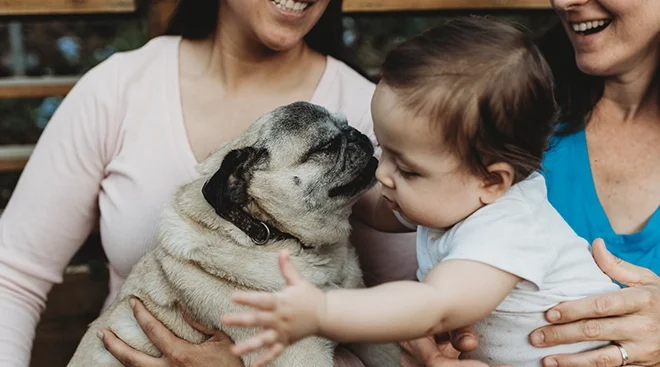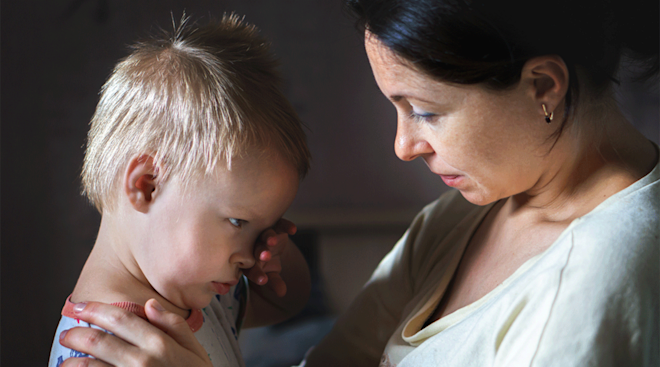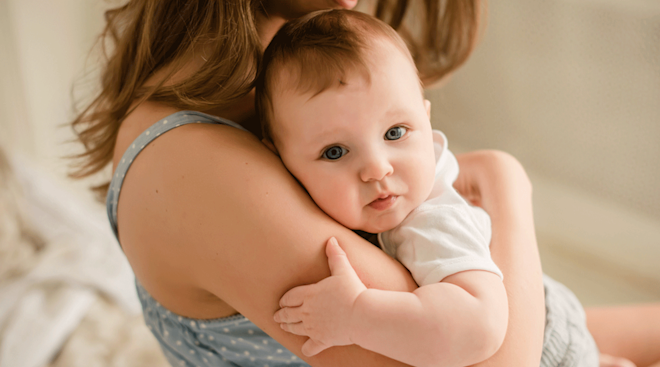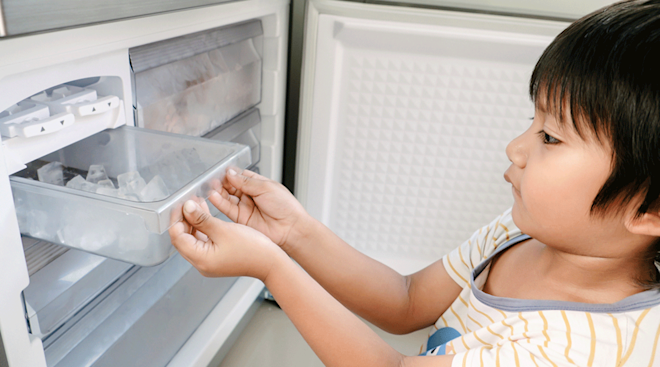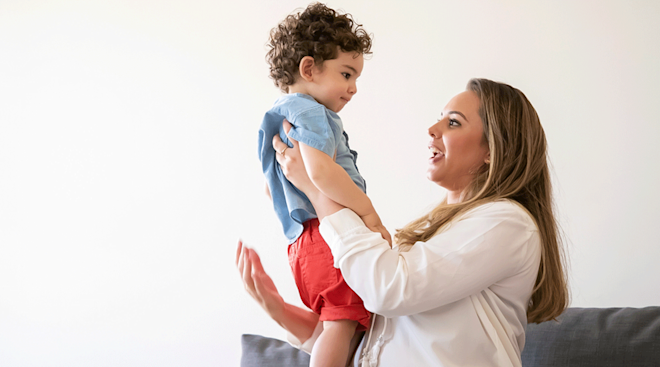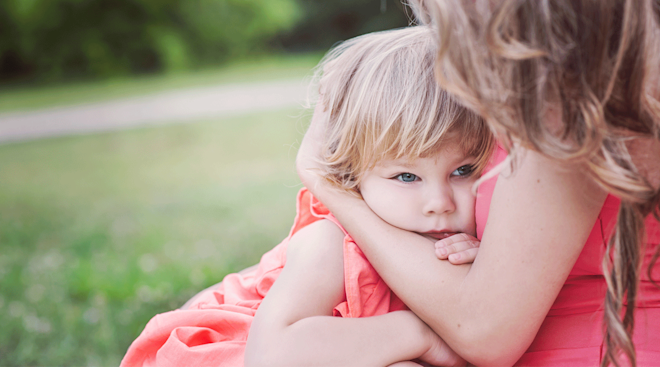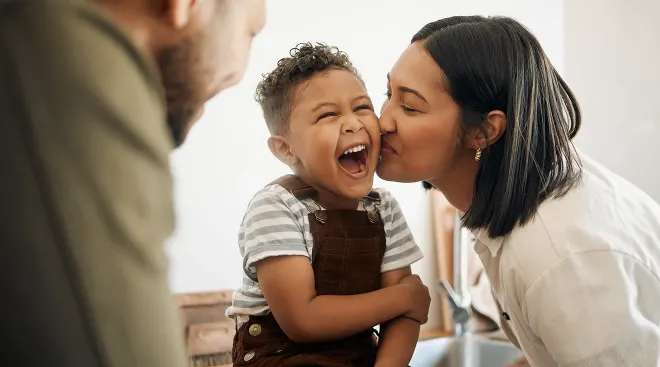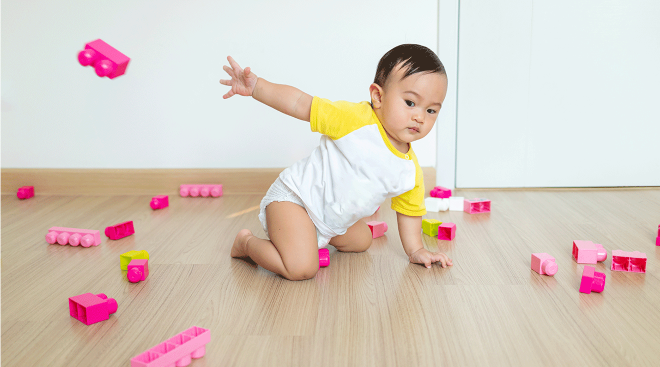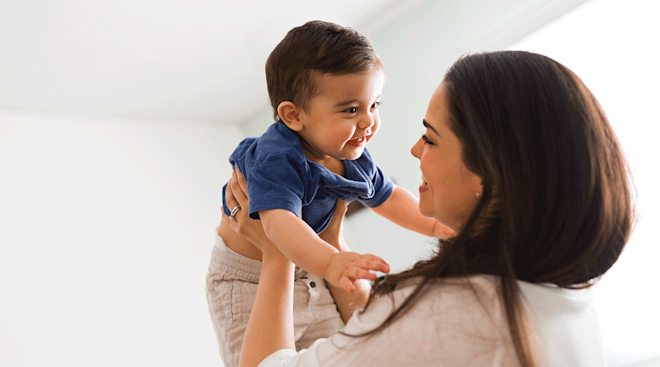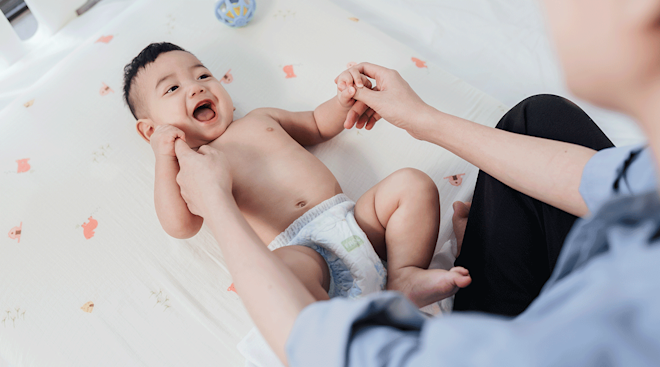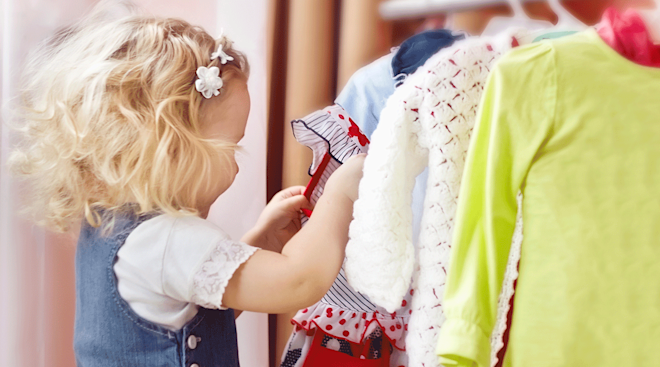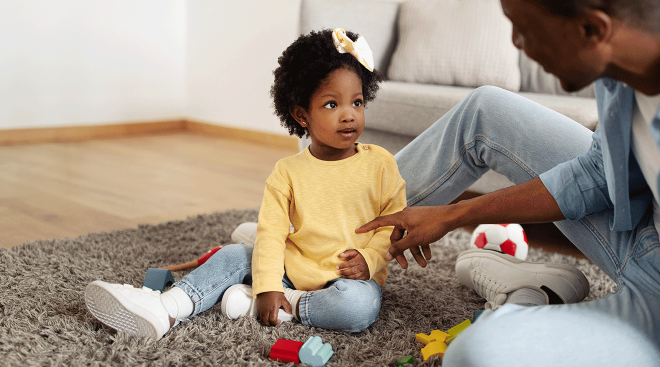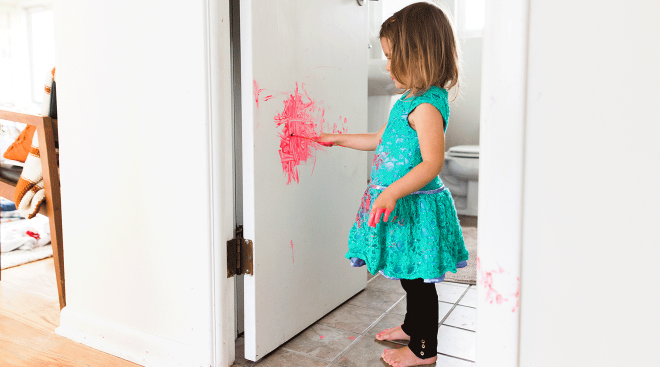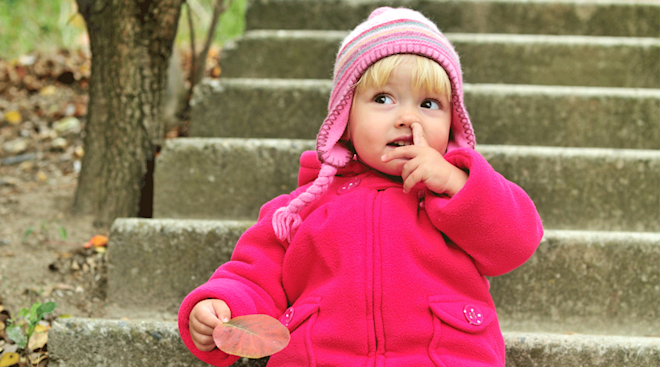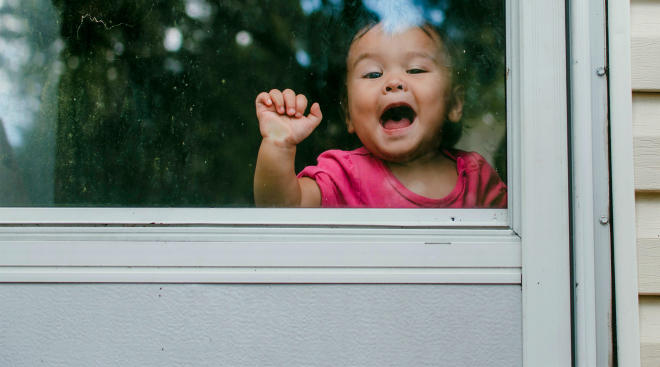5 Research-Backed Ways Dogs Can Benefit Baby
Dogs are America’s most popular pet, and over 69 million households have reported having at least one dog in 2022. Loving, funny, furry, and flat-out super cute, there are many benefits of having a canine companion. If you have a furry friend or are thinking about welcoming a pup into your family, here are just a few of the science-backed benefits for baby.
Dogs Provide Immune Boosting Benefits
A study conducted by researchers in Finland has found that babies in homes with dogs catch fewer colds, get fewer ear infections and need fewer antibiotics in their first year of life than babies raised in pet-free homes. The study followed 397 children from birth to 1 year of age and observed the frequency of respiratory symptoms and infections. The results suggest that having a dog in the home has a protective effect against respiratory tract infections during the first year of life and may lead to better resistance to infection during childhood in the long run.
Dogs Can Help with Emotional & Cognitive Development
Dogs provide a powerful sensory experience for babies, both visual and tactile. From watching a fast-moving tail to petting a dog’s soft fur, engaging with a dog stimulates infants to explore more of their surroundings. Their interactions with dogs can provide valuable feedback on how their actions affect others.
One study found that the presence of a dog (or any family pet) during childhood can increase emotional expression and control in children. According to the Human-Animal Bond Research Institute, attachment to pets can promote healthy social development, social competence, increased social interaction, improved social communication and social play in children.
Dogs Can Lower The Risk of Baby Developing Allergies
Protection against allergies can start as early as in the womb for babies. A study by the University of Wisconsin-Madison found that prenatal exposure to dogs can decrease the genetic tendency to develop allergic diseases in at-risk children. Once baby arrives, being in an environment with a pet has been shown to dramatically decrease the risk of developing allergies and asthma.
Dogs Can Reduce Baby’s Risk of Obesity
Research at the University of Alberta shows infants from families with dogs showed higher levels of two types of gut microbes associated with lower risks of obesity. The researchers suggest that babies exposed to dirt and bacteria from fidos fur or paws can develop a better gut microbiome which helps stave off obesity and allergies. The exposure can happen during the prenatal period as well as during the first three months of the infant’s life.
Dogs Improve the Mental Health of Parents
Dogs can also improve baby’s health and future life by proxy. The less stressed, happier and overall better mental state parents are in, the better baby will develop. Research has shown that petting a dog lowers the stress hormone cortisol and can lower blood pressure—keeping pregnant women and their baby’s at decreased risk of adverse outcomes. Science has also shown that interaction between people and their dogs increases levels of the feel-good hormone oxytocin, so sleep-deprived postpartum mothers can get the boost they need to be there for baby.
Welcoming a pup into your family or simply getting your fur baby ready to meet your new baby is a big deal. If you are nervous about the transition, consult the American Society for the Prevention of Cruelty to Animal’s guide to prepare your pup for a new baby and check out these tips for keeping your baby safe around pets.
Navigate forward to interact with the calendar and select a date. Press the question mark key to get the keyboard shortcuts for changing dates.

































